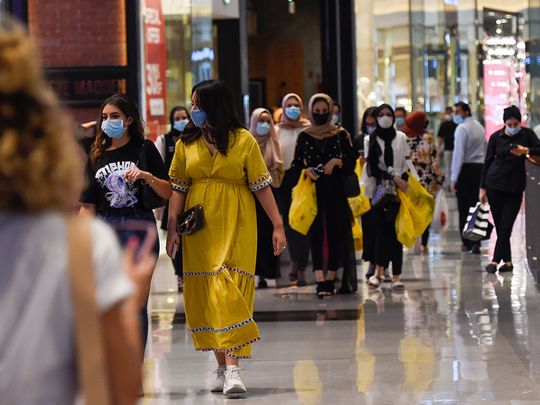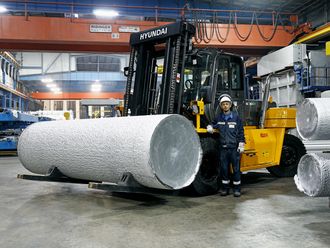
The pandemic sent shockwaves through the global economy since early 2020, with few industries or markets protected from effects of the virus.
Much of the world, especially across Europe, remains in lockdown, with businesses facing an ongoing period of uncertainty and financial difficulty until the international rollout of the vaccine means normality – whatever it may look like - can resume.
With its dependence on the hospitality and retail sectors, the UAE has been particularly exposed to large-scale disruption and a new set of challenges without the consumers to support it. Much of this can of course be attributed to a deep decline in tourism, predicted to fall by $14 billion to $17 billion and take three years to bounce back.
Typically accounting for 30-50 per cent of spend across the region, especially in luxury goods, a lack of foreign footfall has devastated shopping centres and other retail destinations.
Partial relief... and then
The Christmas and peak tourist season brought some relief for the region, yet a surge in coronavirus cases forced countries like the UK to close their travel corridors over concerns about the spread of the virus. Until travel resumes at pace, the future of many of the region’s retailers hangs in the balance – particularly those who were experiencing difficulty before the onset of the pandemic.
Meantime, significant government efforts are underway to boost the local economy. A goal to inoculate 70 per cent by the end of this year will surely help drive much-needed spending.
Yet, it would be wrong to assume that once populations both home and away have received the vaccine that the way we shop will return to how it was before. The pandemic has propelled retail into the future, driving years’ worth of change in just a few short months.
Stick on with online
Most significantly is the shift away from physical retail towards e-commerce, a result of lockdowns and other restrictions to typical shopping behaviour. The speed and convenience of online shopping will continue to hold power over consumers and retailers post-COVID-19, particularly in essential sectors like grocery.
Currently, over half of the population shop for groceries online, with 92 per cent stating they will continue to do so when the pandemic has ended. In fact, e-commerce is expected to more than double to $50 billion in the next five years in the UAE.
To both survive and thrive in the context of this structural change, retailers have had to quickly rethink and rebuild strategies for the future. Not only does this include investing in technology and digital infrastructure to offer an online proposition fit for a post-COVID-19 shopper, it also includes a drastic overhaul of many supply chains to ensure they can keep up.
Rash of insolvencies
Our research shows that for many, this includes bringing sourcing back to domestic economies to mitigate future risk and to have the ability to deliver goods at a speed parallel with growing customer demand. We’ve already seen a wave of insolvencies in the UK and much of Europe among those retailers that cannot evolve. Especially those with limited online capabilities or outdated brands – a stark warning for the wider market.
While there is no doubt that online is the future, there will always be a role for physical retail – particularly in a region like the UAE where retail is a key pillar of its identity, known for its world-leading shopping centres and designer goods. Inevitably, we will likely see some store closures, as retail leaders evaluate portfolios and the success of individual premises.
Pivot on experiences
Yet, what we also see is a growing importance of customer experience. With ongoing concerns about health and safety, retailers must now focus on ways to make the shopping experience more meaningful, to entice consumers to return to physical stores.
Retail leaders in the UAE are already seizing opportunities to innovate retail concepts. For example. Majid Al Futtaim recently launched a new concept destination, THAT, which ‘aims to take shoppers on a complete lifestyle journey’. Combining designer fashion with health and wellbeing services, its core focus of customer experience sets it apart from the shopping centres we knew.
With the long-term effects of the pandemic are still unknown, retailers must take bold, decisive action when considering their strategies for the future. While there are significant forces driving change in the market, there are clear opportunities for those that do.










